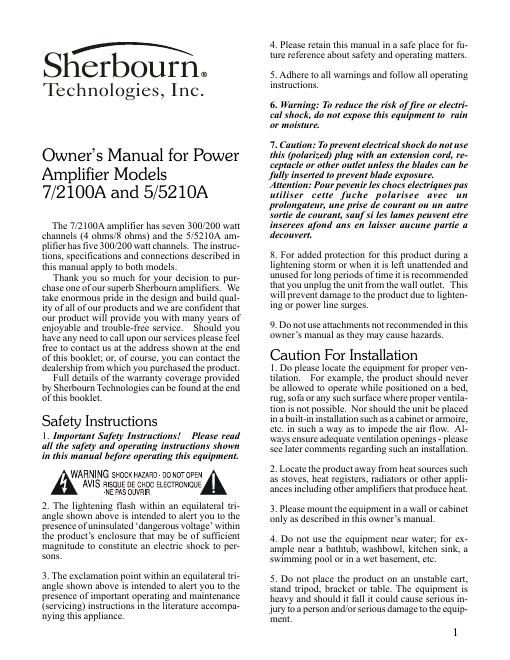Sherbourn technologies 7 2100 a owners manual
This is the 8 pages manual for sherbourn technologies 7 2100 a owners manual.
Read or download the pdf for free. If you want to contribute, please upload pdfs to audioservicemanuals.wetransfer.com.
Page: 1 / 8
